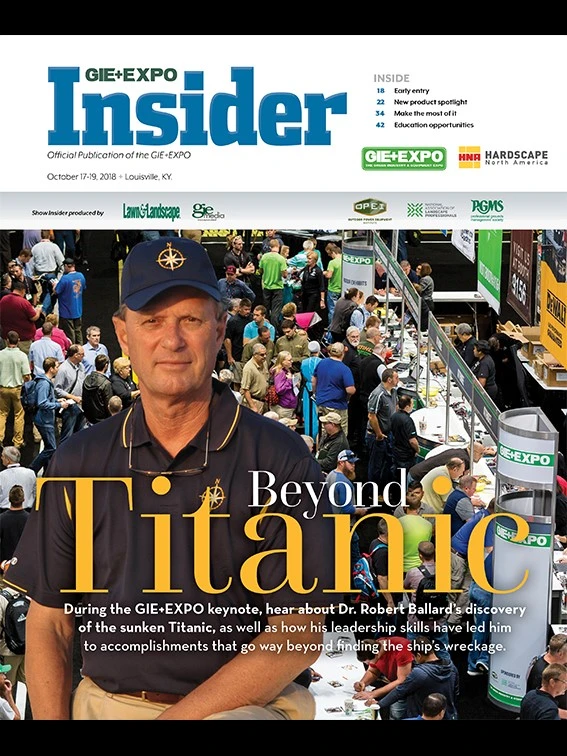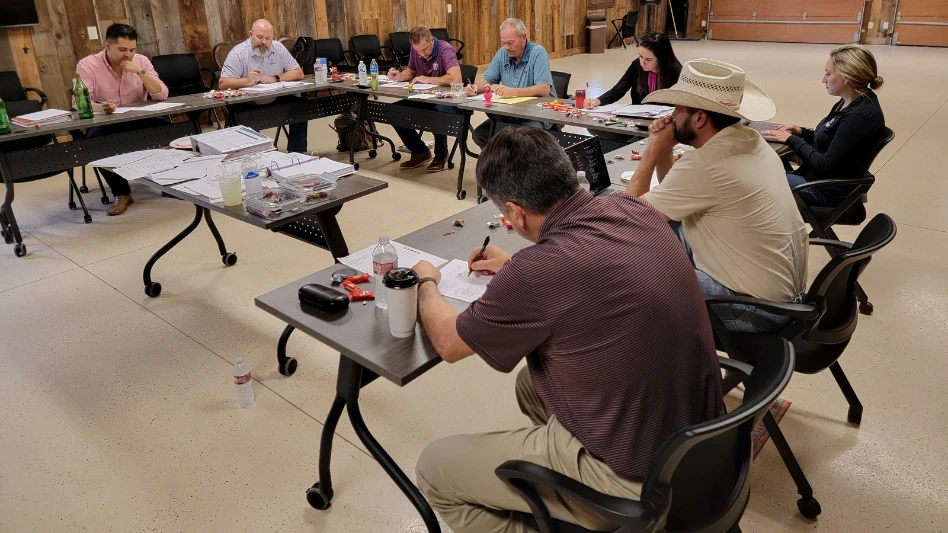
Dr. Robert Ballard remembers the first time he talked to his mother after finding the Titanic. The conversation didn’t quite go the way you would imagine a mother talking to her son who just discovered a historic artifact.
“I had been on the Today show, the tomorrow show, the day after tomorrow show, every damn show you can
Ballard’s mom lacked the expected enthusiasm, but the statement
“I know my obituary is going to say ‘the guy who found the Titanic died today,’” he says.

Learning from a leader.
Ballard will serve as the dealer and landscape contractor keynote speaker on Wednesday, Oct. 17, sharing his practical approach to goal-setting, team-building and execution. But what can a landscaper learn from someone who makes their living by making underwater discoveries?
“Failure is the greatest teacher you’ll ever meet,” he says. “You can’t avoid failure. You won’t learn anything, so you just have to recover from it. You have to have the passion. It’s important to be smart. It’s more important to have a passion to get you up when you get knocked down.”
When Ballard first set out to find the German battleship Bismarck, he failed. On top of that, there was a camera crew to document the search. Afterward, the interviewer asked him how he felt about not finding the ship.
“I looked at the lens and I said round one to the Bismarck. I know where it isn’t. I’ll get it the second time. And I got it. So, I got to put things in perspective.”'
Going undercover.
Ballard found the Titanic while on a top-secret mission for the U.S. Navy. His mission was to find two lost nuclear subs. Ballard would embark on the mission in 1985, but since it was the height of the Cold War, he needed a cover.
That cover would be searching for the Titanic. Ballard received permission that if he completed
“I was on a highly classified top-secret military mission that I was terrified people would figure that was what I was doing,” he says.
While Ballard and his crew were obviously overjoyed when they found it, that excitement didn’t last very long.
“There’s the professional who’s focused and reacts like a professional, and then there is this human that is sitting on the other shoulder,” he says. “Here we were at the 11th hour – it’s a basketball game and we’ve made the shot at the buzzer. Right? So what’s your reaction? You’re jumping up and down and yelling and screaming, and then someone in the command center looked at the clock and said, ‘She sinks in 20 minutes.’ It’s 2 in the morning and she sank at 2:20 a.m. That grounded us. We were dancing on a grave.”
The mood quickly shifted to just getting the job done and respecting the lives lost. Ballard and his team did not remove any artifacts, which they considered grave robbing.
He is currently working with Titanic director James Cameron to help raise enough money to buy the more than $5,000 artifacts after the company that owned them filed for bankruptcy in 2016. The plan is to have them placed in the Titanic Belfast museum.
Ballard has come to terms that he’ll forever be known as the guy who found the Titanic, but he has a good sense of humor. On his current expedition, there is a list of people to call when certain items are found during a dive. Ballard jokes there is one item where he is the only person to call.
“A UFO. Because if I find a UFO, I will never have to talk about the Titanic ever, ever again,” he says with a laugh.

Explore the 2018 EXPO Insider Issue
Check out more from this issue and find your next story to read.
Latest from Lawn & Landscape
- Our February issue is now live
- All fun and games
- Larry Ryan steps down as Ryan Lawn & Tree president
- Session snippets
- WorkWave debuts WavelyticsTM at Beyond Service User Conference
- Picking up after the storm
- HD Hyundai Construction Equipment North America unveils HX90A compact excavator
- Ruppert Landscape acquires Ocean Woods Landscaping





